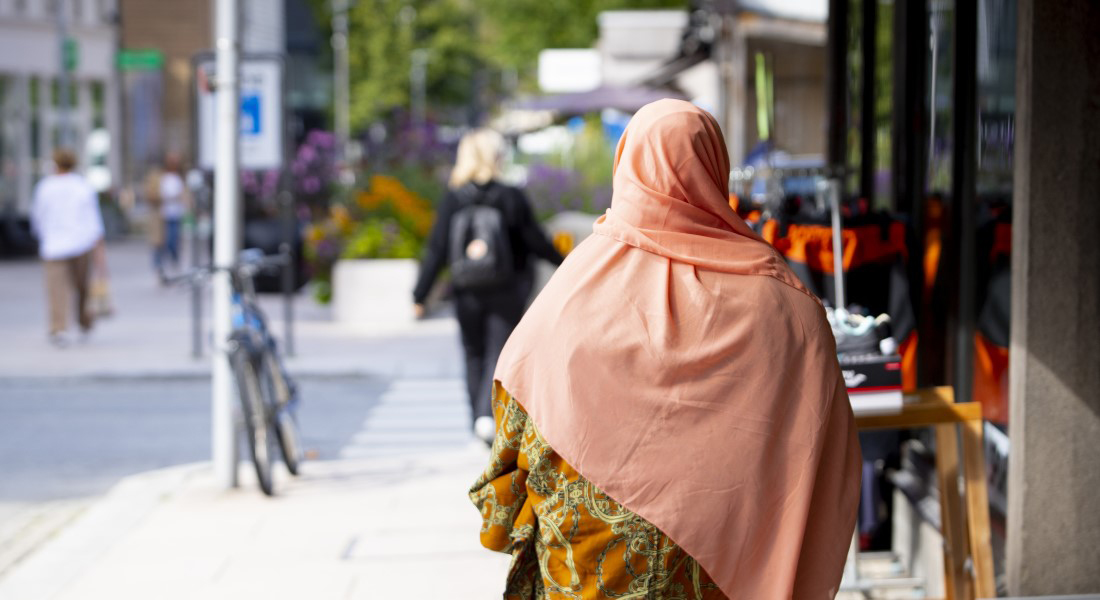How do countries tackle cultural collisions with migrants?
A new project funded by the Carlsberg Foundation will investigate migration from non-western countries and how the host countries handle potential cultural clashes through national policies. Policies that range from the acceptance of multiculturalism to assimilation.

Migration from non-western countries into western liberal democracies is often regarded as a challenge to the liberal values of the host nations. Ultimately, migrants with different sets of values and practices, which conflict with the norms of liberal societies, can spark discussions about ‘cultural clashes’ and how to handle these politically.
Now, a new project funded by the Carlsberg Foundation with a grant of DKK 4,993,097 is set to investigate different national policies on cultural pluralism by studying individual moral judgments and national policies on cultural pluralism in Denmark, Ireland, and the US.
The countries are representing three very different responses to migration from non-western countries, ranging from the accommodation of diverse cultural differences (multiculturalism) in the US to the Danish policies aiming at assimilation by melting away certain cultural differences. The third country, Ireland, represents a potential middle ground.
“The overarching goal of the project is to examine the scopes and limits of tolerance for diverse cultural practices and ways of life of people who migrant into western liberal democracies. The big questions the project aims to answer are: How much tolerance is there? And how much tolerance should there be?’’ says Séamus Power, who is associate professor at the UCPH Department of Psychology.
He will head the work collaborating with three postdoctoral scholars who are yet to be employed, but will conduct the local studies in Denmark, Ireland, and the US when the project sets off in spring 2022.
Three underlying question
Overall, the project will try to answer its three underlying questions:
- How do governments, via their laws and policies, open up, or close down, space for accommodating cultural pluralism?
- How do different groups of citizens think and feel about the national policies governing the integration of migrants?
- And how do people in western liberal democracies experience, and make meaning of, either being a migrant to a western liberal democracy or a citizen in a country that receives migrants?
To answer the questions, the project will use a range of qualitative methods that combine analyses of the formal policies related to migration and cultural practises with focus groups and interviews involving citizens in the host nations as well as migrants from non-western countries.
The question is if there is a way to sooth the paradoxical tension between two competing moral values in western liberal societies between those who value cultural difference – even if it sometimes means accepting illiberal practices – and those who have a strong moral principle of equality and advocate for assimilation.
As a key case-study, the political and legal analysis will include the cultural practise of circumcision among boys and girls in some non-western migrant communities. While circumcision of girls is labelled oppressive and illiberal in all three countries, the circumcision of boys is debated and can as such provide insight into how the cultural differences are handled differently from country to country.
According to Séamus Power, the project will give a more solid foundation to the discussion about how to tackle migration and the dilemmas occurring when groups of migrants have values that are seen as problematic or even illiberal by the majority in the host nation.
“The question is if there is a way to sooth the paradoxical tension between two competing moral values in western liberal societies between those who value cultural difference – even if it sometimes means accepting illiberal practices – and those who have a strong moral principle of equality and advocate for assimilation. Or to put it in another way: Do liberal societies have scope for accommodating what some people think of as illiberal ways of life and cultural practices?”
See the press release: Carlsberg Foundation awards record grants for Danish basic research
Contact
Séamus Anthony Power
Associate Professor
Department of Psychology
Email: seamus.power@psy.ku.dk
Mobile: +45 31 22 88 05
